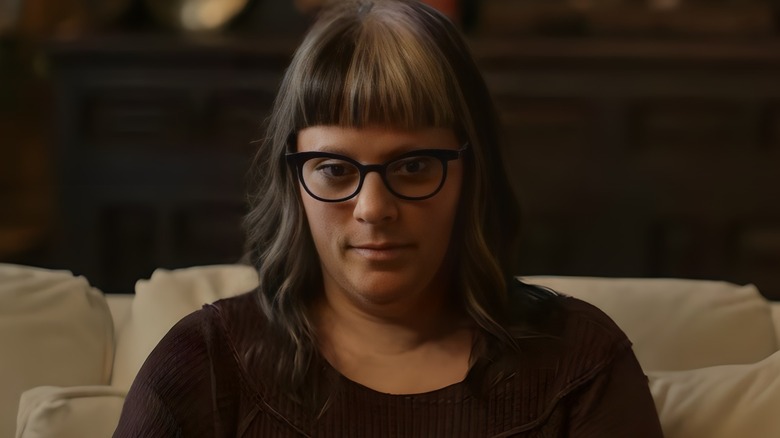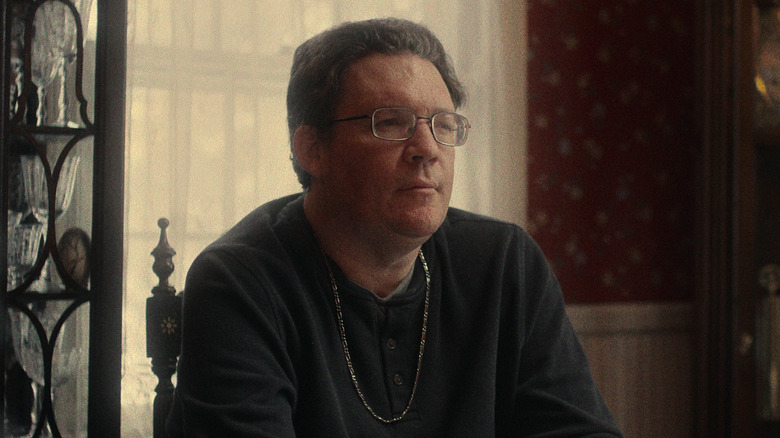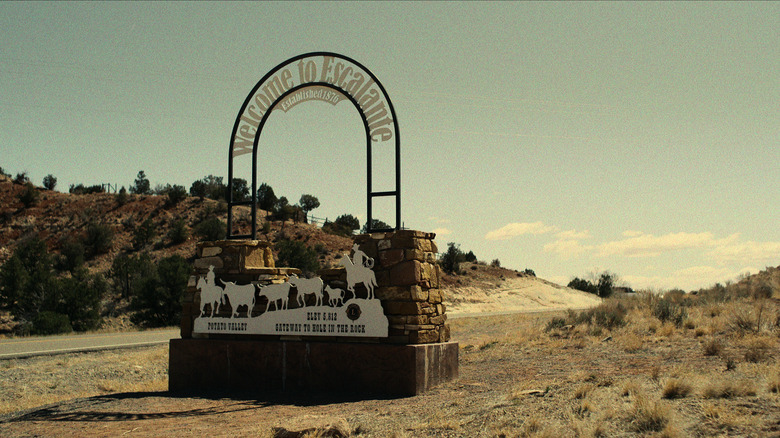Why Netflix's 'Most F****d Up Documentary' Makes Viewers Feel Sick And Horrified
Content warnings: child abuse, physical abuse, and sexual assault.
While much-maligned in her earlier years as a celebrity, Paris Hilton has benefited from the re-evaluation of certain aspects of her life, including the fact she was sent to multiple centers for troubled teens in the 1990s. Footage of Hilton at Capitol Hill is shown at the start of the Netflix documentary "Hell Camp: Teenage Nightmare," with the reality star detailing the physical and emotional abuse she suffered at one such center. Then, on-screen text reveals a chilling truth: camps for so-called troubled teenagers have been in existence before Hilton's horrifying ordeal even happened. As such, it's no surprise that people have reacted to "Hell Camp" on platforms such as X (formerly known as Twitter), with one user calling the film the "most f****d up documentary" they've ever watched and another describing it as "absolutely horrific."
"Hell Camp" focuses on the camps run by Steve Cartisano beginning in 1988, and while the ethos behind them seemed helpful to parents struggling with their children's behavioral issues, the reality was deeply disturbing. As director Liza Williams' 90-minute documentary unfolds, viewers are told harrowing, terrifying stories from real people who were kidnapped as teenagers and put in the care of Cartisano and his counselors, who would force them to hike 500 miles across the desert in Utah in extreme temperatures. One former camper, Nadine, says that the kids weren't given toilet paper, so they used their shirts in the bathroom; she also noted that the girls were so desperate to tie up their hair that they used tampon strings. Things only get worse from there.
Hell Camp is a disturbing, searing look at the business of troubled teens
The allegations of physical and sexual assault within "Hell Camp: Teenage Nightmare" are, without question, the most upsetting parts of the film for any viewer. First, there's Matthew, who was taken to the camp in 1990 and flat-out refused to hike one morning. He alleges that in response to his defiance, his legs and arms were tied and he was dragged over rocks until he was severely injured. Another abductee, Amber, says that she was sexually assaulted as an apparent form of discipline. One teenager even died — Kristen Chase was just 16 years old when she collapsed from heat stroke during a hike in 1990.
Chase's death led to charges against Steve Cartisano and the closure of his first program, dubbed Challenger — but after he was found not guilty of negligent homicide, he created more programs and even ventured outside of the U.S., presumably to avoid any legal consequences. First, there was HealthCare America, which was shut down when authorities found abused children in the Puerto Rico location ... but Pacific Coast Academy in Samoa was even worse. (Shockingly, Cartisano subjected his own son David to this brutal program.) Thankfully, the United States Embassy viewed a leaked videotape detailing the goings-on at Pacific Coast Academy and it was shut down. Cartisano died in 2019, but as the documentary notes as it concludes, his work led to many, many more camps that abused supposedly troubled teens.
Liza Williams thinks Hell Camp has an even sadder message underneath the shock value
In an interview with Variety, director Liza Williams opened up about making "Hell Camp," which certainly couldn't have been an easy task for her or the people who graciously spoke to her about their horrifying experiences. Certainly, Steve Cartisano and the people who worked with him are the problem, and many social media users agreed, including X users @VioletsPlanet and @metaloperalypse, the latter of whom called out Challenger field director Lance "Horsehead" Jaggar for his lack of remorse over the camp's actions. However, Williams believes the saddest part of this entire tale is that parents simply didn't understand how to handle their children as they went through a difficult time.
"When we started making it, I thought it was going to be a film about really badly behaved teenagers," the director admitted. "Sometimes that is the case and parents were really tearing their hair out and didn't know what to do about their child that was putting themselves in danger ... The communication had broken down and I think that's really sad ... That was really hard to hear — that they were having a really tough time and then they were put in a situation which obviously made things 10 times worse."
Williams thinks that the central message of this documentary is relevant to parents experiencing difficult times with their children. Beyond that, she hopes that parents would try and connect with their kids before turning to any sort of camp like the ones Cartisano ran.
If you or someone you know may be the victim of child abuse or has been a victim of sexual assault, contact the relevant resources below.
- The Childhelp National Child Abuse Hotline at 1-800-4-A-Child (1-800-422-4453) or their live chat services.
- The Rape, Abuse & Incest National Network website or RAINN's National Helpline at 1-800-656-HOPE (4673).


